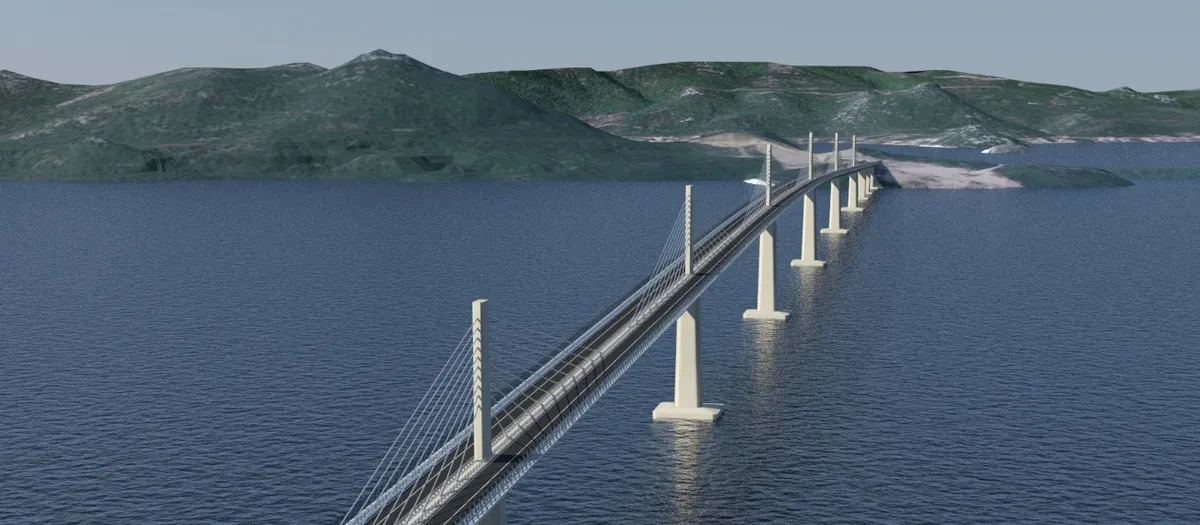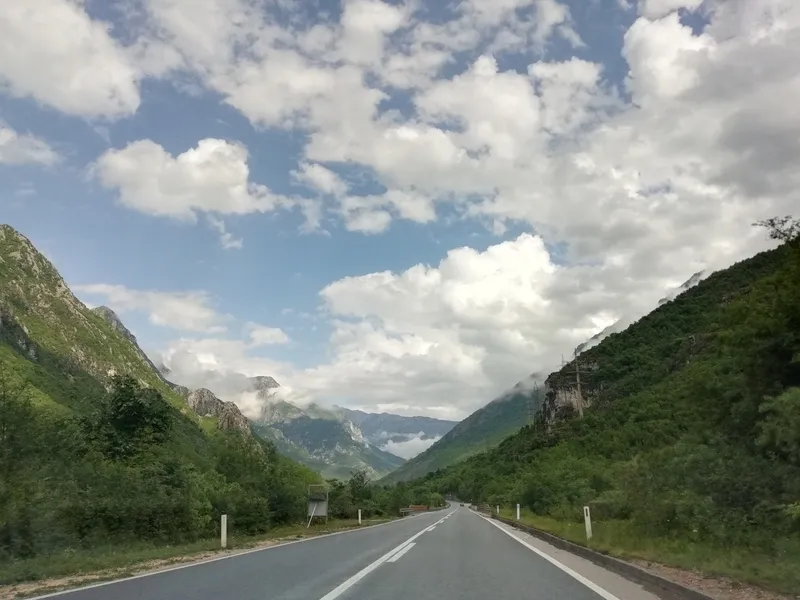Croatia’s minister of infrastructure, Oleg Butkovic, said a winner will be chosen to build the controversial Peljeski Bridge on the Adriatic Sea coast by summer 2017.
The project, valued at around €370 million, will be carried out in three phases.
In June, a tender was started by the national roads company Hrvatske Ceste but was halted last month over complaints by some bidders about pre-qualification issues.
The State Commission for Control of Public Ordering recently rejected the pre-qualificatio
November 21, 2016
Read time: 2 mins
Croatia’s minister of infrastructure, Oleg Butkovic, said a winner will be chosen to build the controversial Peljeski Bridge on the Adriatic Sea coast by summer 2017.
The project, valued at around €370 million, will be carried out in three phases.
In June, a tender was started by the national roads company Hrvatske Ceste but was halted last month over complaints by some bidders about pre-qualification issues.
The State Commission for Control of Public Ordering recently rejected the pre-qualification complaints and the tender is going forward, according to Croatian media.
Around 80% of the cost will be co-financed by the European Commission’s body for large infrastructure projects, JASPERS - Joint Assistance to Support Projects in European Regions.
According to construction plans accepted in 2007, the project is for a 21m-wide cable-stayed bridge carrying four lanes across the entrance to Mali Ston Bay. The main span would be 568m and likely be the second largest in Europe. The two main pylons would reach 170m above sea level.
The project also calls for access roads at both sides of the bridge. Work would include two tunnels on Pelješac - one nearly 2.2km long and the other at 450m - as well as two smaller bridges on Pelješac, one 500m long and the other only 50m.
Once completed, this bridge would physically connect all of Croatia, which is now interrupted by a strip of land belonging to Bosnia and Herzegovina.
Start of construction has been continuously delayed until shipping rights and boundaries can be properly defined between the two countries. Klek is at the entrance to the 21km long Mali Ston Bay and the small Bosnian town of Neum is at the end. The bay, with a maximum width of 2.2km and depth between 7-28m, is well-known for oysters and mussel farming.
There have been concerns by Bosnia about possible obstruction of cargo ships bound for Neum. The Bosnian government is planning to upgrade the infrastructure of Neum, the only Adriatic access for Bosnia along its 20km of coastline.
The project, valued at around €370 million, will be carried out in three phases.
In June, a tender was started by the national roads company Hrvatske Ceste but was halted last month over complaints by some bidders about pre-qualification issues.
The State Commission for Control of Public Ordering recently rejected the pre-qualification complaints and the tender is going forward, according to Croatian media.
Around 80% of the cost will be co-financed by the European Commission’s body for large infrastructure projects, JASPERS - Joint Assistance to Support Projects in European Regions.
According to construction plans accepted in 2007, the project is for a 21m-wide cable-stayed bridge carrying four lanes across the entrance to Mali Ston Bay. The main span would be 568m and likely be the second largest in Europe. The two main pylons would reach 170m above sea level.
The project also calls for access roads at both sides of the bridge. Work would include two tunnels on Pelješac - one nearly 2.2km long and the other at 450m - as well as two smaller bridges on Pelješac, one 500m long and the other only 50m.
Once completed, this bridge would physically connect all of Croatia, which is now interrupted by a strip of land belonging to Bosnia and Herzegovina.
Start of construction has been continuously delayed until shipping rights and boundaries can be properly defined between the two countries. Klek is at the entrance to the 21km long Mali Ston Bay and the small Bosnian town of Neum is at the end. The bay, with a maximum width of 2.2km and depth between 7-28m, is well-known for oysters and mussel farming.
There have been concerns by Bosnia about possible obstruction of cargo ships bound for Neum. The Bosnian government is planning to upgrade the infrastructure of Neum, the only Adriatic access for Bosnia along its 20km of coastline.







